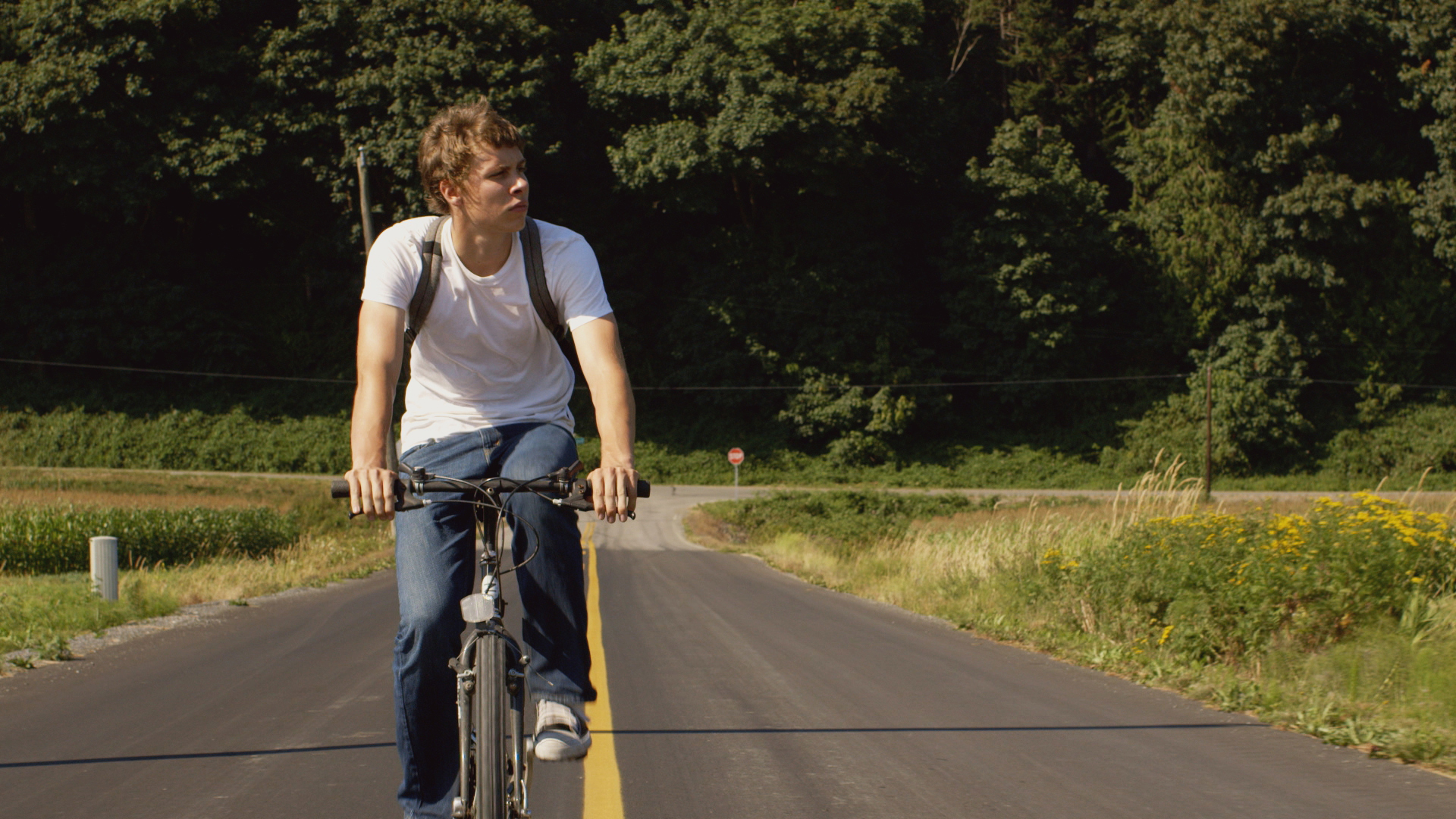Now an idea made obsolete by digital video, the old unit of cinematic measurement used to be a single reel of 35 mm film: 1,000 feet and about 11 minutes to tell a story. This was ideally suited for the gags of Charlie Chaplin and early Hollywood cinema. For the directors represented in the 1 Reel Film Festival, there’s no such constraint. Works can range from a few minutes to a half-hour in this exhibition of 100-plus shorts, grouped into 20 themed packages, screened at the SIFF Film Center (the old Alki Rooms, for you veteran Bumbergoers).
Let’s look at the locals first. Most are being shown in a Northwest block (7 p.m. Sun), including Peter Edlund’s The New West, which concerns a small posse of drug dealers at a rural high school. As an ominous vigilante student seeks to bust that posse, the film plays like a few scenes from a larger story—a modern, youth-oriented spin on Yojimbo (and by extension, Dashiell Hammett’s Red Harvest). Some may recognize the young lead of B.F.E. (Ian Lerch), seen during SIFF this year, as a sniveling underling. Our sympathies naturally go to the vengeful stranger instead.
Donald Saunderson’s Clarity is like one of those missed-connections ads on Craigslist come to life. In voiceover, we hear a young male commuter rehearse and imagine how he might flirt with an attractive girl on his train. Over the montage of their daily rides, eventually he gets his act together (something like Groundhog Day), and we hear her voice, too. It’s a Mittyesque reverie that ends as most daydreams do.
The most ambitious and polished in this group is Mark Lundsten’s The Bath, based on a poem about Alzheimer’s and cast with professional stage talent. An aging husband (Frank Corrado) finds himself increasingly unable to manage his mentally deteriorating wife (Kathleen Chalfant) in the family home. Their busy adult daughter (Cheyenne Casebier), with a child of her own, attempts to help—but this is a family overtaxed by medical circumstance. Given the familiar and increasingly common dilemma, Lundsten doesn’t push the pathos in our face. The situation speaks for itself, and The Bath quietly sides with the survivors, if you will: those who have to keep on living, no matter the guilt they must endure.
Dance films have their own program (1 p.m. Sun.), and there I liked Alia Swersky’s sweaty, dusty, rollicking choreography in Beneath Our Own Immensity. It was shot and performed in the I-5 Colonnade mountain-bike park on west Capitol Hill (between Fairview and Eastlake). How Swersky and her 10 Cornish College dancers kept the BMX set out during filming, I have no idea. (“Dude, what are all these dancer chicks doing here?”) But they put the ramps and trails to good use: rolling, climbing, clambering, tumbling, and tossing up copious amounts of dust. There’s a certain aspect of Stomp! here, but without the Broadway sheen.
An award winner at SIFF this year, Amanda Harryman’s Maikaru (3:30 p.m. Sat., Sun., & Mon.) is mostly a direct-address monologue by its protagonist, formerly a Seattle street kid from a fairly horrific family background. As Michael tells his life story, which includes violence, drug dealing, and sexual abuse, you’re inevitably reminded of the 1984 documentary Streetwise, filmed among a similar community of hard-luck kids. Thirty years later, the streets are still full of predators and victims, and it’s hard to tell if Michael’s self-salvation is the exception or the rule.
On a sillier, bloodier note is Eric Kissack’s cowboy spoof The Gunfighter (8 p.m. Sat.), which borrows the same device as Will Ferrell’s Stranger Than Fiction. But here, instead of only one guy being able to hear the omniscient narrator of his life, everyone in a gun-packed frontier saloon/brothel is confounded by the godlike basso voice. (Listen carefully, it’s… Nick Offerman of Parks and Recreation!) Each time a threat is made or an accusation leveled, six-shooters about to leave holsters, the narrator turns these galoots in an absurd new direction. (One gunman protests, “We’re playing right into the voice’s hands!”) Laughter aside, you come away from The Gunfighter with one firm conviction: Everyone’s interior monologue should be spoken by Nick Offerman.
bmiller@seattleweekly.com
Bumbershoot takes place Aug. 30–Sept. 1 at Seattle Center. $62 for single day pass, $175 for 3-day pass. Pick up Seattle Weekly’s print edition for a full schedule and map. Or go to bumbershoot.org for more information. And be sure to check out all our suggestions for music, film, and visual arts.








